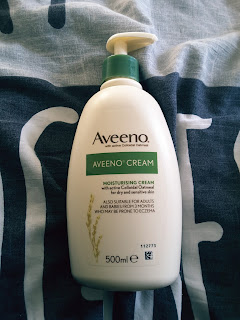Psoriasis Linked to Beer Consumption; Gluten to Blame?
This is an article by a write at Chemist Direct. It talks about the possibility that there is a link between beer and psoriasis due to its gluten content. At the end of the article I will link to the study where the information was obtained from therefore allowing you to read it yourself.
Psoriasis
Linked to Beer Consumption; Gluten to Blame?
Research has shown that women who drink
alcohol more often, particularly regular beer, appear to be at greater risk
from the autoimmune skin disease psoriasis.
Psoriasis is skin disorder which affects
around 3% of the population in the UK. It’s an immune condition where skin
replacement speeds up causing raised ‘plaques’ which can be scaly, flaky and
itchy with a darker skin tone. It affects both men and women equally and the
severity of the condition differs from person to person. In many cases it can
have an impact on sufferer’s lives both physically and mentally
so finding ways to improve
the condition or stop it from occurring is important to psoriasis
sufferers.
Although many doctors will say that diet
is not a major factor in psoriasis outbreaks a study by Researchers from
Brigham and Women's Hospital, Harvard Medical School, and Boston University has
shown that women who have more than 2 alcoholic drinks per week (particularly
beer) appear to be at increased risk of developing the condition.
The study consisted of 83,000 nurses, 1,000
of which had had previous outbreaks of psoriasis.
Every two years the women who participated in the study were sent
questionnaires about their alcohol consumption. They were questioned about how
much they drank, what they drank and if they had been diagnosed with psoriasis.
The research found that drinking wine, light beer and liquor did not cause an
increase in the risk of developing the condition. However those who drank non
light beer and consumed on average 2.3 beers a week had a 72% greater risk of
getting psoriasis compared to those who did not drink at all. The risk was also
increased further for those who consumed 5 or more non light beers a week.
Abrar A. Qureshi, assistant professor of
dermatology at Brigham and Women's Hospital and Harvard Medical School in Boston with
relation to the study stated:
"We can say that if a woman would like
to consume alcohol and if she has a family history of psoriasis or known
psoriasis in the past or some other reason she might be predisposed to
psoriasis, the alcohol of choice probably should not be non-light beer"
"When we looked up the components of
different alcoholic beverages, one thing that stood out for non-light beer was
the amount of protein, gluten in particular," said Qureshi "When we
stumbled on this, we realized that there have been reports in the past that
ingested gluten was associated not just with psoriasis worsening but other
autoimmune diseases, such as celiac disease."
Due to the fact that there was no significant
increase in psoriasis risk with other types of alcohol suggests that a
component in beer, possibly barley, may be responsible for the increased risk
of developing the condition.
Beer is one of the very few non distilled
alcoholic drinks, and uses a fermentation process usually with a starch source
such as barley. Barley contains gluten, a substance that sufferers of
autoimmune conditions such as psoriasis can be very sensitive to. The
researcher of the study says that the association between alcohol consumption
and increased risk of new cases of psoriasis, or of the condition worsening,
has been suspected for a long time.
If you think you have a risk of developing
psoriasis or already have it staying away from gluten may help your condition
and many sufferers of the disorder have seen their skin
improve dramatically by following a gluten free diet. The researchers of the
study believe that doctors should educate patients on the potential impacts
lifestyle can have on the condition whilst encouraging changes which may be
beneficial to them managing the disease.
Where can I see this information for myself?
Where can I find more Chemist Direct psoriasis articles?

.jpg)

